
Fine Classical, Instrumental, and Specialty Recordings
Label: Soundset Recordings Item Number: SR1030 Format: CD Year Recorded: 2009 Recital in the West Caio Pagano Carlos Alves - Clarinet
Caio Pagano - Piano 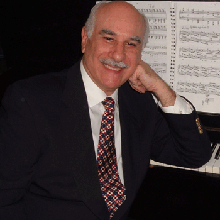 Loved both on and off stage by audiences and critics everywhere for his "commanding technique," (London Times) and "power and bravura" (Berlin Die Welt), Brazilian pianist Caio Pagano is in great demand in major musical and cultural centers around the world. The New York Times called his Beethoven "superb, absolutely first-class." Pagano frequently performs with leading orchestras throughout Central and South America, the United States and Europe. He has been presented in more than 500 performances as recital soloist, chamber musician and orchestra soloist in such diverse places as Brazil, Uruguay, Argentina, Colombia, Guatemala, Mexico, Honduras, Panama, El Salvador, Costa Rica, the United States, Canada, Portugal, Spain, France, Italy, Switzerland, Germany, England, Belgium, Holland, Denmark, China and Czech Republic. Drawing from the traditional classical repertoire to twentieth-century music gems and world premieres of noted contemporary Brazilian composers, his programs consistently receive rave reviews from music critics wherever he performs. Mr. Pagano has performed with many leading conductors, including Ernest Bour, Szymon Goldberg, Sergiu Comissiona, Morton Gould, Eleazar de Carvalho, Jose Serebrier, Paul Freeman and James Sedares. Pagano's artistic talent was recognized at the young age of four, when he began his piano studies in Brazil at Magda Tagliaferro's school. He continued with this illustrious pianist in Paris and followed with Helena Costa in Portugal. He completed his training with Karl Engel in Hanover, and Conrad Hansen at the Hamburg Hochschule in Germany. Among Caio Pagano's many awards are the International Beethoven Award, Portugal; the International Award in Barcelona; and the Grand Prix of the National Piano Competition in Brazil. Other academic credits of the artist include a law degree from the University of SãoPaulo and a Doctorate in Music from The Catholic University of America in Washington, D.C. He is very much in demand to adjudicate international competitions in Europe, the United States, and South America. As Professor at the University of São Paulo, Brazil, Caio created the International Biennial of Music, which attracted many internationally acclaimed artists who collaborated with him (including Saschko Gawriloff, Cristof Caskel, Raphael Hillyer, Werner Taube, Henry Schuman). He also toured with Pierre Fournier, Janos Starker, Thomas Friedli, Szymon Goldberg, Albor Rosenfeld and the Jacques Thibaud Trio. Caio has been a featured artist at the Miami New World Festival, the Washington Interamerican Fest, the Grenoble Festival, the Megève Festival and many others. Mr. Pagano has performed with many leading conductors, among them Ernest Bour, Szimon Goldberg, Sergiu Comissiona, Morton Gould, Eleazar de Carvalho, Jose Serebrier, Paul Freeman, and James Sedares. Presently as a Regents' Professor of Music at Arizona State University, Pagano attracts some of the brightest students on the horizon today. He is also a noted scholar, published in the United States, Europe and Brazil, delineating his vast knowledge of twentieth-century music and the works of composers from Haydn to Schoenberg. In 2000, Maria João Pires and Caio Pagano co-developed the Belgais, Centre for the Study of the Arts in Portugal. The center hosts an ambitiously innovative series of courses for international students and is ideally located in Ms. Pires' medieval country home in Portugal. Caio Pagano is a Steinway Artist who is regularly featured on radio, including recent highlights on National Public Radio, and on television. He has appeared regularly on BBC in London, Norddeutsche Rundfunk in Hamburg, Voice of America in Washington D.C., Dutch Radio in Hilversum, Radio de la Suisse Romande in Geneva, and National Broadcasting in Portugal, to name just a few. With more than a dozen recordings heralding his mastery, Pagano has two CDs produced by Summit Records. His most recent CD with this label features Guarnieri's "Chôro" and "Concertino" with the Czech National Symphony, released simultaneously with the 500th anniversary of Brazil's discovery. Mr. Pagano also has a CD with Soundset Recordings featuring Franck's "Variations Symphoniques" (SR 1017) with the Bratislava Radio Symphony, and a new CD with Glissando featuring works of Villa-Lobos, released worldwide in May 2000. One of the finest pianists Brazil has produced, his transcendental technique is accompanied by exuberant lyricism, intellect and a polished sense of style. Caio Pagano combines a profound knowledge of the arts, literature and music which characterizes his interpretations as authoritative and unique. Carlos Alves - Clarinet Carlos Picarra Alves is the Artistic Director of the International Music Festival of Pacos de Brandao (Portugal); Soloist A of the National Orchestra of Porto; Chairman of the Clarinet Department of the Escuela Superior de Musica e Artes Aplicadas de Castelo Branco. He has been an invited artist and professor at Arizona State University in both 2009 and 2010 to perform concerts and teach master classes. He has also taught at the Portuguese Catholic University, Superior Music School in Lisbon, and Superior Music School in Porto, Portugal. H received the Prix de Perfectionement at the Conservatory of Versailles (class of Professor Philipe Cuper, Super Soloist of the Paris Opera). He is currently receiving his doctorate at the University of Aveiro in Portugal. Alves has participated in master classes with Walter Boykens, Guy Deplus, Philipe Cuper, Guy Dangain, Michael Arringnon, Michael Collins, and Paul Meyer. Alves has received awards from the most important Portuguese competitions as well as semi-finalist in the International Competition in Rome and winner in the International competition Aurelian Octav Popa in Romania. Since then, he has launched an intense career as a recognized soloist and chamber artist expanding internationally in the United States, Russia, Germany, France, Italy, Norway, Spain, Portugal, Romania, and Macao. His most recent recording was for the label EMI classics, performing the Clarinet Concerto by Mozart. Another notable recording was published by the label Numerica, on which he performed Messiaen's Quartet for the End of Time, and Bartok's Contrastes at the Mosteriro Sao Bento da Victoria. Carlos Alves is a member of the groups Oficina Musical and Artclac Ensemble He is a Buffet Crampton artist and is considered to be one of the great clarinetists of his generation. A brilliant performance of works by Poulenc, Debussy, Berg, and Brahms, played clarinetist Carlos Alves and pianist Caio Pagano.
Label: Soundset Recordings Item Number: SR1030 Format: CD Year Recorded: 2009 Music for clarinet and piano by Francis Poulenc, Claude Debussy, Alban Berg, and Johannes Brahms This recital recording of clarinet and piano music is a chamber-music lover's joy to listen to. It includes the single best performance of the first Brahms Clarinet Sonata I've ever heard: That means it is not only musically expressive, phrased with sensitivity and intelligence, but also that Carlos Alves gives his clarinet a beautiful, rounded, plummy tone - unlike the reedy squawking of a Richard Stoltzman. It is the rich and elegiac tone that inspired Brahms to write so much clarinet music near the end of his life. And ASU faculty-member Caio Pagano is one of the few pianists who really feel simpatico with Brahms' idiosyncratic piano writing. Some pianists try to make a clear melody-and-accompaniment out of the complex fingerings, which misrepresents Brahms' music, while others founder in the dense texture. Pagano always makes perfect sense of all those notes. Also included in this Arizona performance is Francis Poulenc's bright and witty sonata, Debussy's "Premiere Rhapsodie" and the seldom heard Alban Berg mini masterpiece, the "Four Pieces for Clarinet and Piano," Op. 5. Through it all the musicians maintain the highest standards of sound production, phrasing, musicianship and, what is more important, meaning: They play the music like it means something. Don't miss this gem. -Richard Nilsen, The Arizona Republic, Jul.11, 2010 "Recital in the West" sports an album cover similar to those that adorn any number of recordings of Grofé's Grand Canyon Suite, but what awaits on the disc inside is something else entirely. By what fluke, I had to wonder, did I receive two other clarinet recitals for review in this same issue, one with clarinetist Waldemar Zarów playing Debussy's Première Rhapsody, the other with clarinetist Antonio Tinelli playing the Brahms sonata, both of which works happen to be on this CD? 'Tis a mystery. Portuguese born Carlos Alves Piçarra has a lengthy résumé which you can read in full by Googling his name and clicking on the button to translate his bio from Portuguese into English. The short version is that he is Artistic Director of Portugal's Festival International Music Hall of Brandão, he plays first clarinet in the Oporto National Orchestra, is Chairman of the Clarniet Department at Escola Superior de Música e Artes Aplicadas de Castelo Branco, and in 2009 and 2010 was invited to perform and teach masterclasses at Arizona State University, which is where the "Recital in the West" and the Grand Canyon theme come in; for ASU's School of Music is where this program was recorded. Piçarra has concertized throughout Europe, Russia, Romania, Macau, and Cape Verde, as well as in the U.S.; and for EMI, so sayeth the artist's biopic, he has recorded Mozart's clarinet concerto, but with whom I don't know because I haven't been able to find the CD listed anywhere. I suspect it may be a limited release available only in Japan or possibly Portugal. Brazilian pianist Caio Pagano, on the other hand, claims a discography of at least six CDs listed at ArkivMusic, two of which containing works by Guarnieri and Villa-Lobos have been reviewed by Fanfare's James Miller and William Zagorski in 23:6 and 24:2, respectively. The disc Zagorski reviewed, by the way, includes Villa-Lobos's Guia prático para piano that Pagano plays on the second of the two headnoted CDs to be addressed below. Pagano has achieved international recognition as concert pianist, teacher, and music scholar. Since 1986 he has been Professor of Piano at Arizona State University. He has performed worldwide with major orchestras, toured with Pierre Fournier, Janos Starker, and Szymon Goldberg, and joined in concert with the St. Petersburg Quartet, Maria João Pires, Gerard Caussé, and the Jacques Thibaud Trio. At ASU, he created the Brazilian Festival in 2000, and with Pires, the Center for Studies of the Arts in Portugal. As noted in my review of Waldemar Zarów's CD, Debussy wrote his Première Rhapsodie for clarinet in fulfillment of his first official duty upon being appointed by Fauré to the Paris Conservatory's board of directors in 1909. The piece was to be used for the following year's clarinet competition. It might have been a conflict of interest, but on July 14, 1910, Debussy nonetheless sat on the jury judging the 11 candidates. A year later, he orchestrated the piece. Poulenc's Clarinet Sonata, completed in 1962, turned out to be one of the last pieces the composer would write. Not unlike Saint-Saí«ns, who in the year of his death composed a triptych of wind sonatas for oboe, clarinet, and bassoon, Poulenc planned a quartet of wind sonatas for flute (previously written in 1956), clarinet, oboe, and bassoon, but the bassoon sonata was never begun. The clarinet work was commissioned by Benny Goodman who intended to premiere it with the composer at the piano, but Poulenc passed before the piece was published. The premiere took place in Carnegie Hall with Goodman and Leonard Bernstein at the piano. Not-easily-pleased New York Times critic Harold Schonberg, in an unusually gracious mood, allowed that the work showed "remarkable finish, style and refinement," and went on to describe the slow movement as "one of those melting, long-phrased and unabashed sentimental affairs that nobody but Poulenc could carry off." The whole sonata is actually quite beautiful. Poulenc turns his Les Six hat inside out to expose the serious, melancholic lining that frequently hid beneath his beanie with the propeller on top. That childlike silliness and mischievousness comes out in the last movement, which Schonberg dissed, declaring that "Poulenc's inspiration seems to have run out." Another famous Schoenberg, Arnold by name, expressed his own displeasure in no uncertain terms at his student Alban Berg's experiment in Webern's art of the miniature, the Four Pieces for Clarinet and Piano, op. 5. According to musicologist Brian Archibald, Schoenberg delivered some "strong criticism of Berg's recent work, and possibly even of his personality," severely tongue-lashing his traumatized student in an attempt to dissuade him from composing songs and small-scale works and to direct himself instead toward extended instrumental composition. After that verbal spanking, Berg never wrote another miniature. The Four Pieces are brief - a total of only 63 measures - but complex, and really not Webernesque. Berg's gestures are more Romantic and not as angular, detached, or pointillistic. There's a real lyrical element, for example, in the second of the pieces, marked Sehr langsam ("Very slow"). Closing the program is Brahms's F-Minor Clarinet Sonata, one of two he wrote for the instrument in 1894. The work is so well-known and has received so many recordings, there's really nothing new to be said of it. The performances here by Alves and Pagano are beautifully mellow and mature, rather different from the aforementioned Tinelli and Mazzoccante who adopt a more assertive approach. This is not to say that Alves and Pagano do not rise to Brahms's moments of passion and outbursts of agitation. They do, but with the understanding that these are the emotions of a man who has come to terms with the stirrings of his heart and who knows the measure of his soul. Not just the Brahms, but the Poulenc, Debussy, and Berg pieces are all superbly played. Alves's tone is rich and woody, but also sufficiently nuanced to adapt itself to the different styles and technical demands of each of these works. Pagano proves a sensitive partner throughout. Moving on to the second disc, titled Music for Children, I mentioned above that it contains the same Guia prático pieces by Villa-Lobos performed by Caio Pagano that was reviewed by Zagorski on a Glissando CD back in the Nov-Dec, 2000 issue. I haven't heard that CD, but here's what I know: Villa-Lobos compiled 137 traditional Brazilian songs into an anthology entitled Guia Prático ("Practical Guide") which later served as the basis for 11 volumes or albums of piano miniatures under the same title. The current Soundset recording reproduces the first six volumes of five pieces each that appeared on the Glissando disc; but curiously, this new release provides every production credit and detail but one, date of recording. I have no way of knowing whether Pagano has recorded these pieces anew for the disc at hand or if this is a recycling of the previous recording. Two sentences in the cardboard flap note lead me to believe this is not a new performance: "The Summit, Soundset, Deutsche Grammophon, and Glissando labels publish his [Pagano's] recordings. His CD, Music for Children, by Heitor Villa-Lobos, has received rave reviews." The blurb then goes on to reference the Fanfare review. I interpret that citation and use of past tense to mean that this is the same recording Zagorski reviewed 10 years ago. That Glissando CD, however, did not include Schumann's Kinderszenen, which is included here, but another work by Villa-Lobos in place of it. The clarinet disc with Alves, on the other hand, is almost assuredly new, since his bio does not indicate any association with Arizona State University prior to 2009. I apologize for wasting so much printers ink on this matter, but Soundset should have made the provenance of the Schumann/Villa-Lobos disc clear. Inquisitive readers like to know these things. Needless to say, new or recycled has no bearing on Pagano's playing. I have no other recordings of the Villa-Lobos pieces for comparison purposes, but to my ear Pagano realizes each of these miniatures with keen instinct for their native Brazilian dance rhythms and harmonic piquancy. As Zagorski explained, these pieces are not directly comparable to Bartók's For Children or the slightly later Mikrokosmos which were designed to teach kids the piano not only in a graduated way through increasingly difficult exercises but in a way that would motivate them to respond spontaneously to the joy of "discovering new, harmonically exciting, and musically compelling pieces." Zagorski continues, "The Guia prático, though largely containing relatively easy pieces, is far removed from entry-level piano literature, and requires a pianist of considerable technique and interpretive depth to tease out its often haunting melos. Brazilian pianist Caio Pagano provides a surfeit of both." I would concur. It is Pagano's teasing out of the haunting melos that I was describing when I referred to his keen instinct for the native Brazilian dance rhythms and harmonic piquancy of these pieces. Schumann's Kinderszenen is not for children (or for learners); it's about children, 13 vignettes for adults in which the composer recalls and reminisces about childhood. It requires a pianist with both solid technique and guileless art to make these pieces sound artless, as they should, and that's exactly what Pagano manages to do. I was halfway to the closet to retrieve my hobby horse when I realized I didn't have it anymore, but Pagano brought me consolation for its loss and contentment with memories of my own childhood. Both of these discs are strongly recommended. -Jerry Dubins, Fanfare | |||||||||||||||||||||||||||||||||||||||||||||||||||||||||||||||||||||
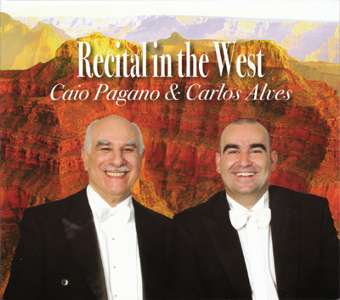
 Amazon
Amazon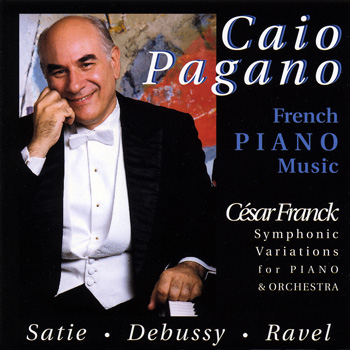
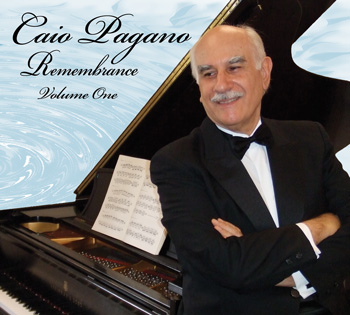
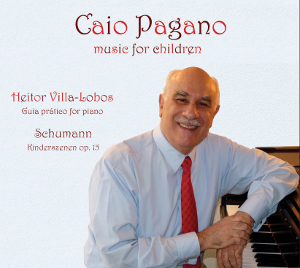
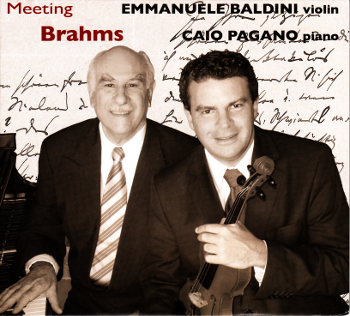
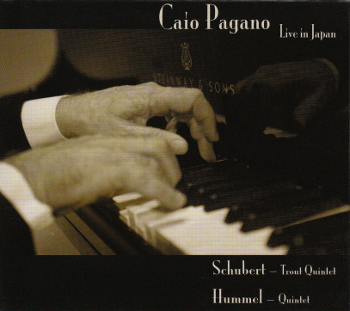
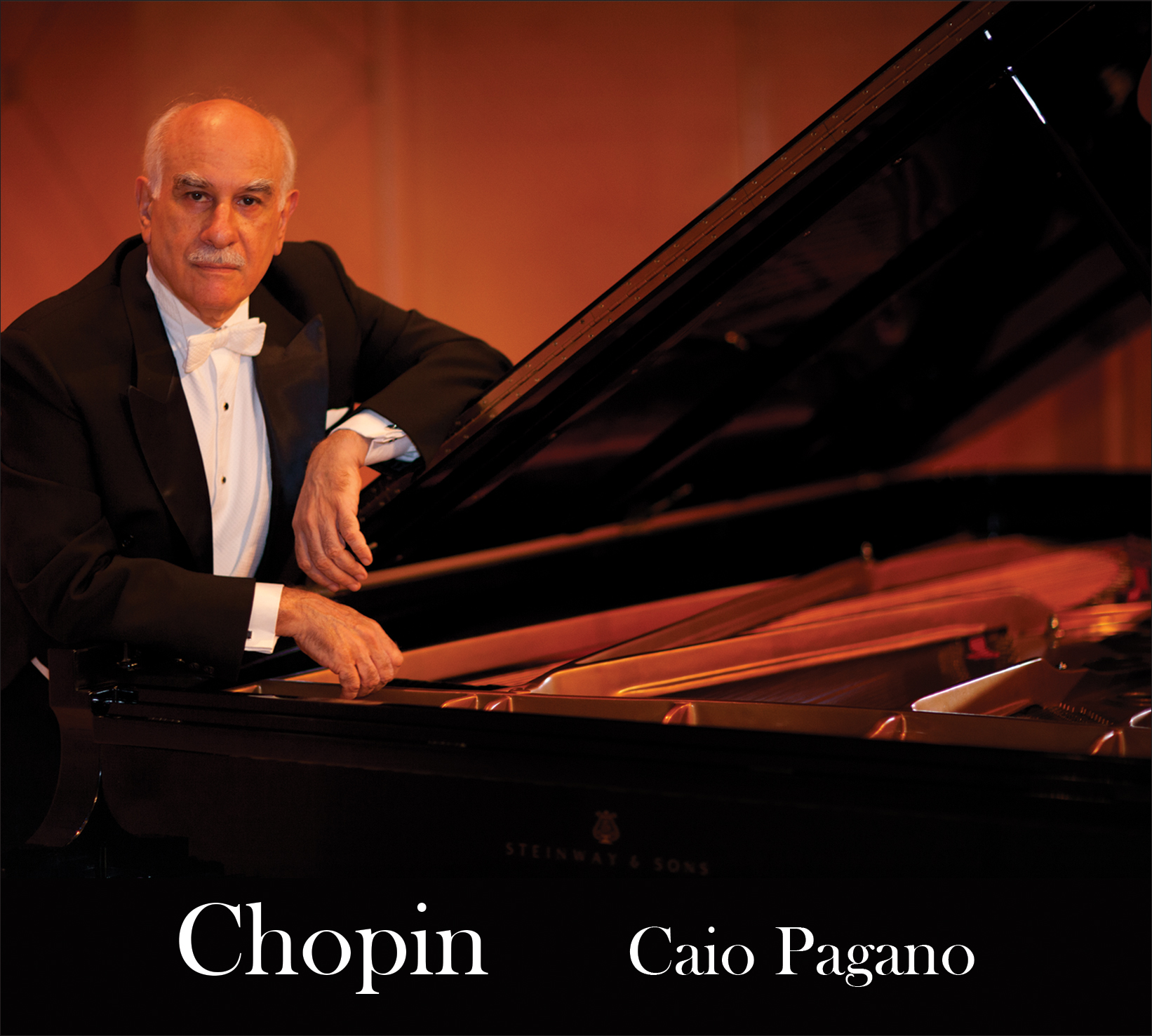
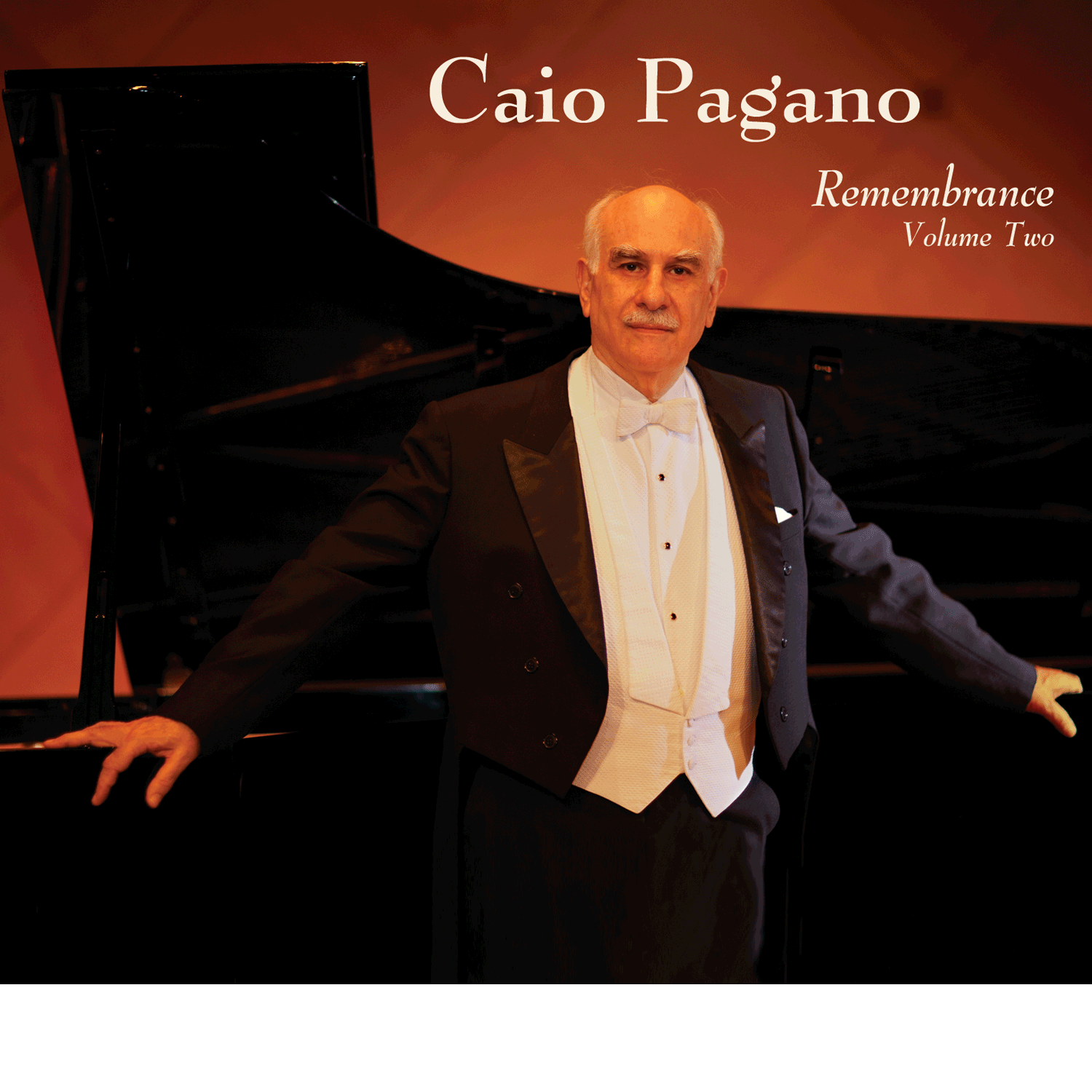
 Follow Us on Twitter
Follow Us on Twitter Follow Us on Instagram
Follow Us on Instagram Visit Our Partner Soundset Recordings
Visit Our Partner Soundset Recordings